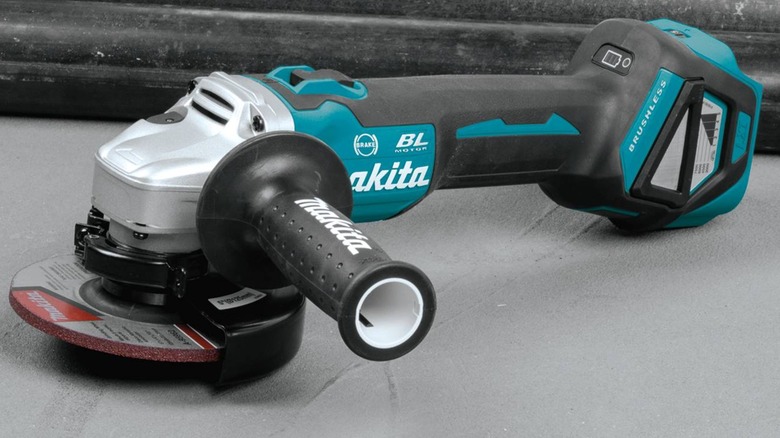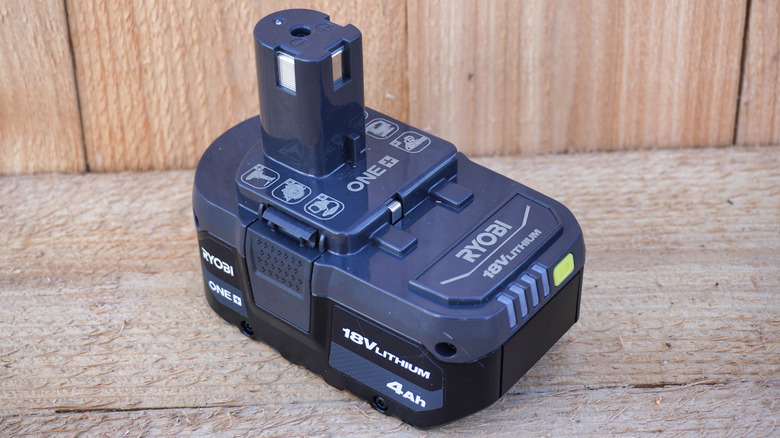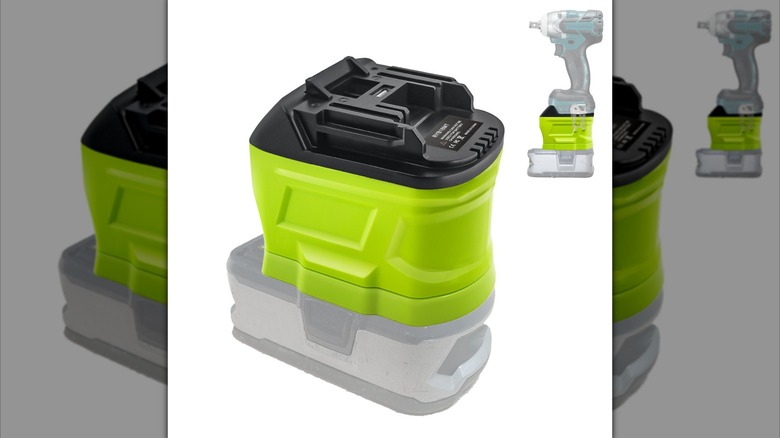Are Ryobi Batteries Compatible With Makita Tools?
We may receive a commission on purchases made from links.
When you work with tools for long enough, an unusual thing eventually happens: No matter how much you try to stick exclusively to a single power tool brand, you seem to end up with a mish-mash of tools and accessories from across the major tool brands. This isn't an inherently bad thing, as shopping outside of one brand can occasionally get you access to novel features or discounts. However, it does come with one big problem: battery compatibility.
Say, for example, you've got a Makita tool you want to use, but the only batteries you have charged and ready for action are from Ryobi. Perhaps, in a perfect world, you could save yourself some time and just clip that Ryobi battery onto the Makita tool and get right to work. Unfortunately, that's not the world we live in; due in large part to the way that they're shaped.
Ryobi batteries are wholly incompatible with Makita tools. The only way to overcome this limitation would be to use a third-party battery adapter, but using those kinds of unsanctioned accessories may end up hurting your tools more than helping them.
Ryobi batteries will not fit a Makita tool
If you look at a Ryobi ONE+ 18V battery side-by-side with a comparable Makita 18V LXT battery, the problematic disconnect is readily apparent. All power tool batteries clip onto their respective tools using special panels and connector rails, which place their power transfer terminals in slightly (or in some cases, overtly) different positions.
Ryobi's batteries are an outlier amongst most power tool batteries, as instead of a traditional panel, they're topped with stalk-like protrusions, which you can see the metal power terminals on the sides of. A Makita battery has a flat top with a recessed center housing its power terminals. A Makita tool is designed to receive only that recessed center.
In other words, there's no way to secure a Ryobi battery to the receiver of a Makita tool; it would fall right off. Even if you could somehow lock the battery in place, due to the stalk on the Ryobi battery, the power terminals wouldn't line up with those on the Makita tool's receiver. That means you wouldn't get any actual power delivery.
There are battery adapters, but using them could be hazardous
More than a few individuals find the disconnect between Ryobi, Makita, and every other power tool brand irritating, which is why many have taken it upon themselves to attempt to bridge those gaps without the brands' permission. This pursuit takes the form of unofficial battery adapters: Homemade devices from individuals or third-party brands sold on platforms like Amazon, eBay, and even Walmart. A Ryobi-to-Makita battery adapter would clamp on top of the Ryobi battery's stalk, then connect to a Makita tool via its top panel to transfer power.
While this sounds like a perfect solution, there is a major concern to be aware of here. Ryobi batteries contain a small circuit board that is only programmed to recognize connected Ryobi tools, communicating with them to optimize and safely regulate power delivery. When you connect a Ryobi battery to a Makita tool via an adapter, that circuit board is bypassed, forcing power through with potentially no particular rhyme or reason.
With unregulated power delivery, your Makita tool could either experience underwhelming, undervolted performance, or worse, a full-on power overload that could end up burning out the motor permanently. Should either your Ryobi battery or Makita tool suffer permanent damage while using a battery adapter, neither brand will offer you much in the way of replacements, as using third-party accessories is a violation of Ryobi's battery warranty and Makita's tool warranty.


